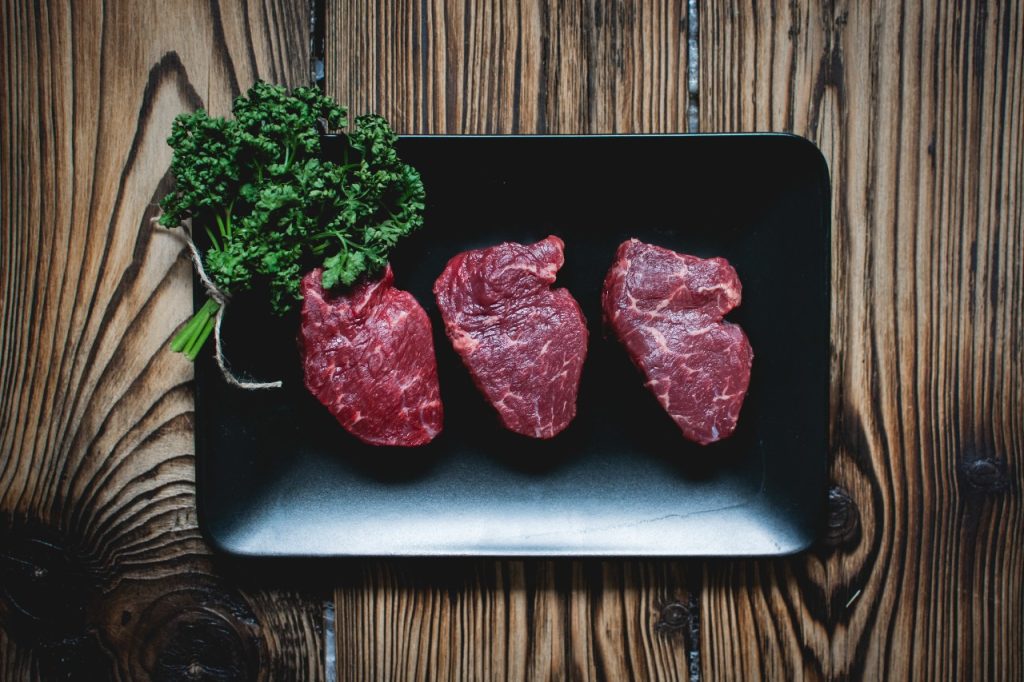
Slightly pale. Kind of slimy. A small chunk of meat sits in a laboratory in Tokyo, Japan. It doesn’t look like much – but it is.
On April 16th, 2025, scientists revealed what is in essence the world’s largest lab-grown chicken nugget. In a world scrambling to cut climate emissions, the future of food is on the line—agriculture currently accounts for more than a fifth of the global carbon budget. The Tokyo nugget might be a glimpse of what’s next in reducing that contribution to climate change. Not just because it’s new technology, but because it’s engineered to meet people where they are: unwilling to give up meat.
Sure, lab-grown meat isn’t new. But this breakthrough is different. The chicken wasn’t assembled from tiny fragments, as in earlier attempts, but instead was grown as a continuous piece. That feat makes it a milestone in humanity’s slow pivot away from traditional meat—the kind obtained by killing animals—something that lab-grown alternatives may finally make possible.
But if you find that pale, slimy nugget off-putting, you’re not alone. “What people refer to as natural or unnatural, that’s something that is deeply rooted in our society,” explained Mark Post, the first person to provide proof-of-concept for cultured meat in 2013. Many struggle to abandon meat-heavy diets for the planet. Whether due to cost, emotional aversion, or simple inaccessibility, widespread adoption of lab-grown meat or vegetarian diets remains out of reach.
Resistance to changing food habits runs deeper than taste or texture. It’s psychological.
And as it turns out, telling someone to put down their burger might be the fastest way to decrease their willingness to do so. In a 2020 study, “Don’t Tell Me What to Do,” researchers at Georgia State conducted an online survey experiment testing how different climate messages affected support for climate action. They found that telling people to restrict their behaviors in the name of climate change actually lowers their pro-climate support.
But here’s the thing – a lot of pro-climate action is good, not only for the planet, but for you.
Research by Lorraine Whitmarsh, a psychologist and environmental scientist at the University of Bath, demonstrates that many climate actions have co-benefits. Those with a “green” lifestyle have higher well-being. Going green isn’t a sacrifice, it’s a better way of life.
Meat production causes an estimated 12-17 percent of global greenhouse gas emissions. And meat-heavy diets are linked to health risks like heart disease. Given the health and climate benefits, going vegetarian may seem like the obvious choice. But to most, it’s not that simple.
“[Meat] is a cultural concept that goes back a very, very long time,” explained Post. “It required hunting, risk to die, supremacy over another species, power, masculinity, fire… And so it’s very hard to get rid of that.”
In many cultures, meat is closely tied to gender norms. Researchers at the University of Wisconsin-Madison found that when men felt their masculinity was threatened, they doubled down on their attachment to meat. Men reported a “need to feel full” and were less willing to consider plant-based diets.
Alternative plant-based diets struggle with reputational factors. “For a while, #SoyBoy was very popular with the Alt Right,” Fabio Parascecoli, a professor of food studies at NYU, noted. The social media term mocked plant-based eating as emasculating.
Meat has also historically been tied to socioeconomic status. “To hunt, you had to have access to land, and very often the working classes were not allowed to hunt on anybody’s land,” explained Parascecoli. In the U.S., however, abundant land and access to game helped normalize meat as an everyday food.
“When [migrants] come here, they start integrating meat in their diets in a way that was not possible in the places they came from,” Parascecoli observed. “When they wrote home, they pointed out their consumption of meat as a way of saying ‘We made it!’” Essentially, meat has become an integral part of the American dream.
No wonder people resist giving up something so tied to feelings of power and success. When we look at the problem through that lens, it becomes clearer. No amount of innovation can override the cultural symbol of food. Because it’s not just about what we put in our bodies. It’s about what it means to do so.
So what kind of messaging gets people to rethink their diets?
“There isn’t a single message. There’s four or five, and they all tend to align with eating a more plant-based, less meat-based diet,” explains Christopher Gardner, a nutrition researcher at Stanford University. These messages differ in focus: eating more meat is linked to environmental harm, negative health outcomes, animal cruelty, and the exploitation of underpaid, overworked laborers, just to name a few. At least one of these angles is likely to resonate with someone. “But if you just push one, you don’t get it,” Gardner explained.
To make matters worse, there’s a lot of misinformation around nutrition. “Yes, there is public confusion, and it’s intentional. On the part of the animal food industry, there’s a lot of money there.” Gardner reflected. One common myth is that you can’t get all twenty amino acids from plant-based proteins. “That’s where I step back in as a nutrition professor,” he said, emphasizing that it is possible to do so.
When it comes down to it, most real-time food decisions aren’t driven by values. People tend to choose what’s convenient, affordable, and tastes good.
Right now, cultivated meat is about $17-23 per pound. Plant-based options such as a Beyond Burger hover around $10-12. Meanwhile, conventional is often $5 per pound, depending on quality and location.
Traditional meat is everywhere: familiar and easy to find. Chances are, lab-grown meat has yet to hit your grocery store. Even plant-based alternatives may require some searching.
Finally, most people just like the taste of meat. If an alternative doesn’t measure up, it won’t matter how cheap or convenient it is. Many won’t bite.
So the challenge isn’t necessarily getting people to try alternative proteins. It’s making them cheaper, more convenient, and genuinely delicious. The lab-grown nugget in Tokyo may not change the world overnight. But it’s a start. A sign that change is not only possible, but already happening.

